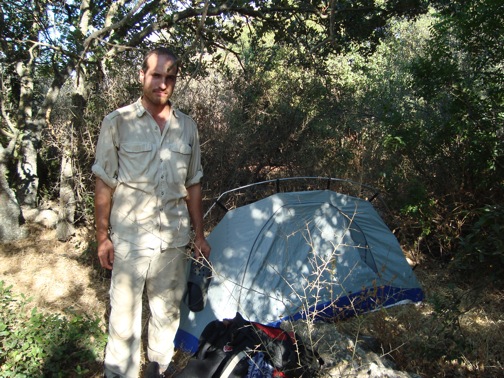
During his trip on the Israel Trail with Derech HaTeva, Rabbi Ben had lots of opportunities to act as a leader. We learn in this week's Torah portion what it means to be a leader and just how important it really is.
Sometimes travel is complicated. Situations arise that you don’t always know how to handle. Maybe your luggage is lost, or maybe it’s you that’s lost. Sometimes you want to be adventurous and go off the beaten track or maybe you’re like Rabbi Ben and in love with trekking and mountain climbing. Whatever your situation, it’s hard to be a serious traveler and not have something unexpected come up. The question is: How do we handle it?
Parshas Nasso is the longest parsha in the Torah. Why? Because it details, again and again, the offerings the princes of Israel brought. Why is it so important for us to devote so much time to reading about this? The Torah doesn’t waste any words! It must be that this is incredibly important. To get to the answer to that question, we have to ask why the princes were bringing these sacrifices. As it turns out, when the mishkan (the tabernacle) was being built, the Jews had to donate a lot of different items. Before the donations started, the princes got together and decided that they would give for the mishkan anything left over that the Jews didn’t give. They figured there would be quite a bit left. But the Jews were so enthusiastic about giving for G-d that they very quickly gave everything necessary – and then even too much! Moshe even had to stop them from giving any more. The princes were left unable to give anything. By bringing these sacrifices, they were finally able to give.
Like the princes of Israel, we as travelers often find ourselves in situations that we’ve never encountered before. Every situation is not just a challenge, but an opportunity – and we each have the potential within us to become a great leader. Last summer, Rabbi Ben traveled to Israel, where he spent a month walking the Israel Trail. But it wasn’t enough for him just to walk it – he had to lead a group of teenage boys on that long hike. And, being a leader, he often had to make decisions – what trail to follow, where to set up camp, and how many hours to hike that day. He was constantly receiving opportunities to act as a leader.
And he did act as a leader, by jumping in and solving problems and taking advantage of every chance that arose. When they passed through a grove of wild fruit trees, he didn’t sit back and wait for the kids to notice the abundance G-d created – he didn’t let the opportunity pass him by. Instead, he led the children to enjoy things like wild figs and berries. By acting as a leader, everyone was able to participate and enjoy – including him!
That is what we must learn from the lesson of the princes. Had they acted as true leaders, they would each have been the first to give a reasonable amount for the mishkan. In that way, all the Jews in their tribes would have followed suit and everyone would have had a chance to give – including the princes. As leaders, this is our potential – let’s make it a reality!






No Responses to “Parshas Naso: Learning to be a Leader”
Trackbacks/Pingbacks